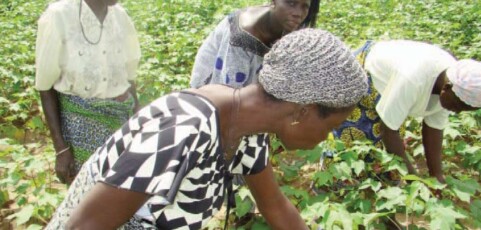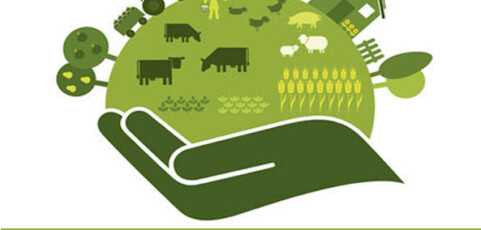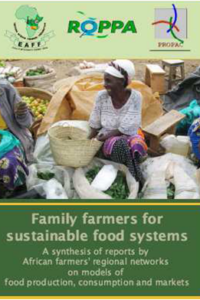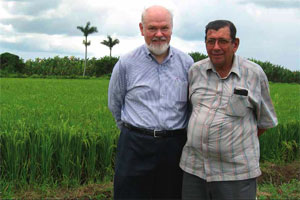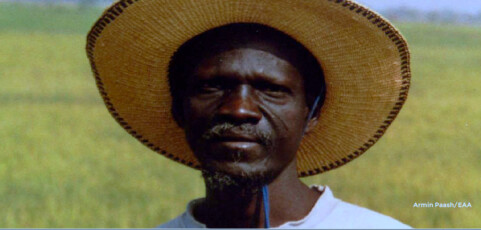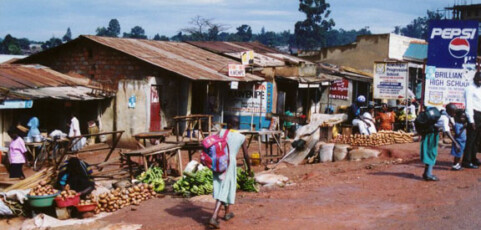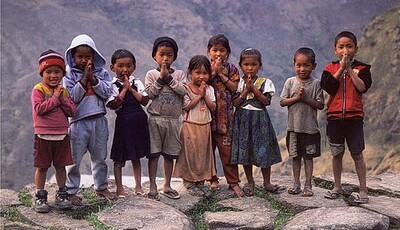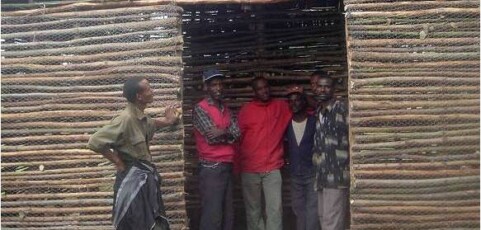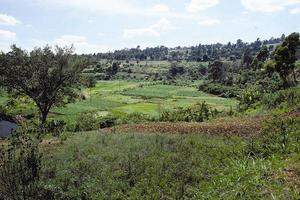A report on studies into the development of a novel pest management tool for organic cotton undertaken by PAN UK and their partners in Benin, West Africa, between 2006 and 2008. This food spray product can be used alongside other biological tools to attract, conserve and utilize beneficial insects. Read more
Local food systems: Tzimbuto and Canasta Utopia
The Canastas Comunitarias, a movement started by families to address their concerns over food prices provides a clear example of an approach that highlights the importance of showcasing peoples’ experiences as an inspiration for social change. Read more
Seeking convergence on agroecology- a conference impression
Whoever thought that agroecology is only gaining momentum as an agricultural practice, science and movement in Latin America, is wrong. A two day conference in June 2013 clearly depicted the richness of agroecology in Europe- as well as the challenges and opportunities. Read more
Family Farmers for Sustainable Food Systems
A report from the europeAfrica campaign showing how family farming is the basis for modern food provision in Africa. Read more
“SRI is something unprecedented”
Interview with Norman Uphoff, Professor Emeritus of Government and International Agriculture at Cornell University, former director of the Cornell International Institute for Food, Agriculture, and Development (CIIFAD) from 1990 to 2005. Read more
Nourishing the World Sustainably: Scaling Up Agroecology
The paper contains 12 different case studies and chapters on agroecology; other sustainable farming methods; agroecology and resilience to climatic changes; evidence of the food security potential of agroecological systems; the scaling up of agroecological innovations, with challenges and opportunities; the approaches that can be used for scaling up agroecology ; conclusions and way forward.
Conservation agriculture: a Uganda case study
This case study presents the status of conservation agriculture in Uganda. It is one in a series of eight case studies about conservation agriculture in Africa, which were developed within the framework of a collaboration between CIRAD French Agricultural Research Centre for International Development,FAO (Food and Agriculture Organization of the United Nations), RELMA-in-ICRAF (Regional Land Management Unit of the World Agroforestry Centre)and ACT (African
Conservation Tillage Network)
Improving Food Security for Vulnerable Communities in Nepal
For families living in Nepal’s remote highland regions, chronic food insecurity and hunger are part of daily life. Their own agricultural production is low; imported food is expensive; and as men migrate to find work elsewhere, women are left to manage farms and households alone. Climate change is making the situation worse.
This case study explores the reasons why Nepal is so vulnerable to food insecurity, and describes what Oxfam and its partners are doing to help improve food security for women and men living in remote parts of highland Nepal. It explores some of the innovative program activities that have been developed with these communities.
From gray to green : replanting hope in Africa’s highlands
In Uganda’s Kabale district, too many people had been trying to make a living from too little land. Because of overpopulation and exhaustion of the soil by intense cultivation, the area had gone into decline. Then, researchers and farmers — supported by the International Development Research Centre — joined forces to revitalize the region.
See: http://hdl.handle.net/10625/34762
Learning in the field : Isang Bagsak helps people chart their own future
A new form of peer learning, developed jointly by researchers and development practitioners in Africa and Asia, uses face-to-face meetings, field practice, and Internet links to learn from each other about participatory approaches to research in natural resource management. Available also in French and Arabic.

